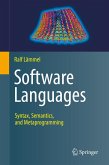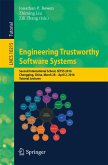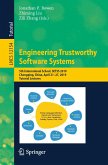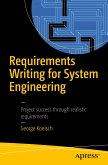The book is structured in two parts, and organized around five fundamental core aspects of the subject: (1) the composition of languages, models and analyses; (2) the integration and orchestration of analysis tools; (3) the continual analysis of models; (4) the exploitation of results; and (5) the way to handle uncertainty in model-based developments. After a chapter on foundations and common terminology and a chapter on challenges in the field, one chapter is devoted toeach of the above five core aspects in the first part of the book. These core chapters are accompanied by additional case studies in the second part of the book, in which specific tools and experiences are presented in more detail to illustrate the concepts and ideas previously introduced.
The book mainly targets researchers in the fields of software engineering and formal methods as well as software engineers from industry with basic familiarity with quality properties, model-driven engineering and analysis tools. From reading the book, researchers will receive an overview of the state-of-the-art and current challenges, research directions, and recent concepts, while practitioners will be interested to learn about concrete tools and practical applications in the context of case studies.
Dieser Download kann aus rechtlichen Gründen nur mit Rechnungsadresse in A, B, BG, CY, CZ, D, DK, EW, E, FIN, F, GR, HR, H, IRL, I, LT, L, LR, M, NL, PL, P, R, S, SLO, SK ausgeliefert werden.









